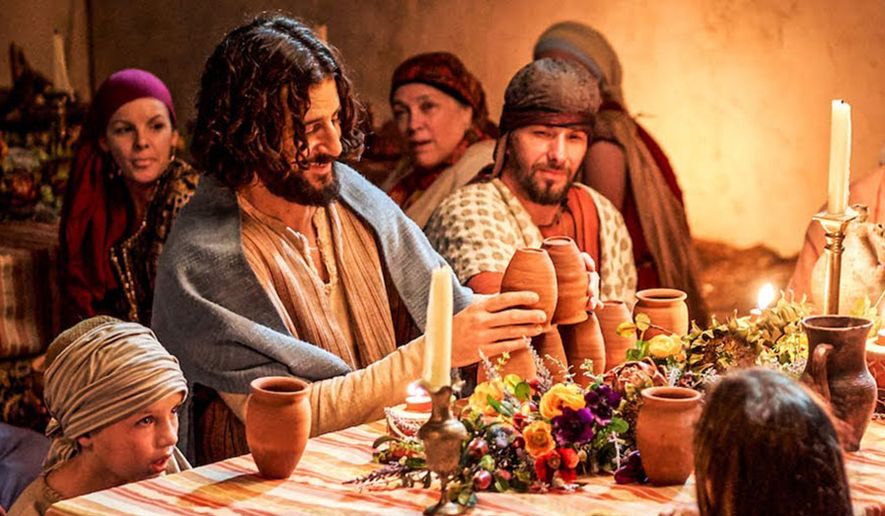OPINION:
It’s Oscars season again, and while TV ratings indicate fewer Americans care about the annual Tinseltown pageant, it affords many an opportunity to take part in another favorite annual pastime: complaining about Hollywood and its role in leading our culture down the drain.
This is not just a perception, the research agrees.
A 2020 study by the Parents Television and Media Council found nearly half of all Netflix programming designated as “Teen” was rated either TV-MA or R, and every single program that carried a TV-14 moniker included harsh profanities. A separate study we conducted in 2018 found that only 1% of Netflix content was rated G, and only 8% rated PG. Further, only 4 minutes out of every hour of original series programming on Netflix was found suitable for a family audience.
In 2021, most Americans are even more concerned about a Hollywood driven by cancel culture and corporate wokeism, one in which even the venerable Dr. Seuss is suspect, but are unclear as to how to fix it. That’s why so many call for boycotts.
The challenge is boycotts don’t work.
Boycotts are almost impossible to measure, and also fail to offer something positive for consumers to do. To achieve the desired result, encouraging companies to listen and change their behavior, Americans should engage in a strategy that actually works, the buycott. By channeling money, and eyeballs, in support of the right content, billions of dollars can be reappropriated in support of change.
A recent National Research Group survey reveals that the potential U.S. audience for the faith-based Angel Studios hit series “The Chosen” is nearly 60 million U.S. adults, or roughly one-third of the total entertainment market. This audience is more diverse than the overall U.S. population, younger and more tech savvy, and actively looking for family-friendly options. And this powerful group is so eager to see the content they want, they’re willing to put their own money behind it.
That is a marketplace game-changer.
When “The Chosen” emerged in 2019 as the #1 crowdfunded media project in history, it was a phenomenon that captured some attention. When it crossed 125 million views and surged into nearly every country in the world, it turned heads. And when it was picked up by NBC’s Peacock, made available at Walmart and aired on networks like TBN, UPTV, INSP and BYUtv, it became a household name.
But is “The Chosen” a one-time proposition or can it be repeated?
The team behind the newly launched Angel Studios, built on a platform in which every project is selected and funded by the crowd, believes the answer is “yes it can be repeated” to the tune of 300 crowdfunded movies and TV shows over the next five years. They’ve already succeeded in funding the “Tuttle Twins,” now the #1 crowdfunded U.S. kids show, with numerous other projects in the works at various stages.
An animated series teaching kids the fundamentals of freedom, something anyone can get on board with, “Tuttle Twins” affords parents a tool they don’t have in the current landscape of kids’ content.
And that’s exactly the point.
The marketplace is one of the most powerful tools at our disposal, and if we want to see more choice, consuming content that celebrates and elevates, is an achievable option. If even a fraction of the 60-million strong values segment gets behind this kind of content consistently, everything will be different.
Consider that “Dry Bar Comedy,” a clean, brand-safe standup comedy series, has more than 2 billion views and is among the fastest-growing comedy brands on earth. That didn’t happen because people boycotted Netflix comedy specials, it happened because they discovered something to support.
We know family-friendly is what most Americans, regardless of political party or perspective, already want. The latest evidence? Observer.com reported last month that the pandemic ushered in a surge in demand for beloved classics like “I Love Lucy,” “George Lopez,” “The Andy Griffith Show” and “Full House.” When we were stuck at home, this is what we wanted to see.
In the streaming age, the entertainment playing field has been leveled, and Hollywood alternatives are popping up. Consider the recent dust-up between Disney and its “Mandalorian” star Gina Carano. Ben Shapiro and his team at The Daily Wire took swift action after learning she had been fired. They didn’t call for a Disney boycott, they asked Ms. Carano if they could work together, and now they are.
I hear stories like this every week.
Creatives are starting projects, launching new apps, collaborating, and figuring out how to offer options Hollywood just won’t. Streamer VidAngel lets parents skip and mute objectionable content in movies and TV shows from providers like Netflix and Amazon Prime, Minno Kids offers faith-based children’s content like “Veggie Tales” and “Owlegories”, and the Fox Nation app is gearing up its content offering, with numerous family-friendly docuseries and original TV in the works. Popular streamers like Netflix and Disney+ may be in direct competition for family viewers, but our research shows streamers still need to make improvements to win over family audiences.
Instead of yelling at the TV, complaining to friends and family or boycotting the Oscars, 2021 can be remembered as the year where everyday people changed the course of our national storytelling.
• Melissa Henson is program director at the Parents Television and Media Council, a nonpartisan education organization advocating responsible entertainment. (www.ParentsTV.org) Twitter: @ThePTC.




Please read our comment policy before commenting.